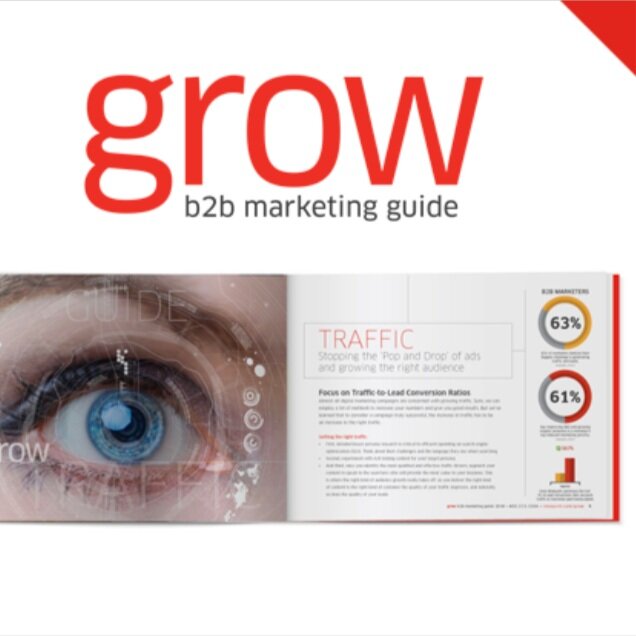 Tech B2B marketers have largely recognized the importance of content marketing to attract and convert new prospects, leading to a tech marketer adoption rate of about 95 percent.
Tech B2B marketers have largely recognized the importance of content marketing to attract and convert new prospects, leading to a tech marketer adoption rate of about 95 percent.
Although these marketers recognize the value of content and building relationships with prospects, they often face numerous challenges in successful implementation. Tech buyers generally have a complicated buyer’s journey. They will evaluate several different options, ask for demonstrations, and involve other members of their team in the decision process. This buyer’s journey will be significantly longer than a typical retailer or ecommerce business.
To overcome these obstacles, there are a few key steps that tech companies can take to improve the effectiveness of their content efforts. Implement these tips in your own B2B tech content marketing strategy.
Document your content marketing strategy
When content marketing was first born, many companies attempted to incorporate it haphazardly. They did not yet have the technology and understanding of how it impacted the buyer’s journey to develop a full, documented strategy they way they did with paid advertising.
That has now shifted. Marketers now have the ability to monitor how people interact with their content, how it impacts their decision-making process, and its ability to bring in leads and customers. Despite these abilities, only about 36 percent of tech companies have a documented content strategy.
Companies should also note that 86 percent of the most successful companies in this sector report that they have a dedicated specialist who takes charge of the content strategy and efforts. These tasks do not end up on the bottom of a to-do pile for generalists; rather, a leader who understands the value of content and how to implement it takes charge.
An excellent example is GE, which has a dedicated content team that spends time developing stories about actual people. They show how the company heroically solved problems, but keeps the focus on making the stories personal. WIth a dedicated team, they had the resources to find a strategy that worked uniquely for their organization.
Focus most of your B2B tech content on your prospects’ questions and challenges
Writing product-focused material comes naturally for many companies using content marketing. They see how their product helps people, so they want to develop content that articulates the problems they help solve.
That will not be what draws prospects in early in the sales cycle, however. Instead, content should be prospect-focused. It should revolve around understanding questions that prospects have, what draws them to research topics related to your industry, and developing a rapport with them that demonstrates your knowledge in the field.
In fact, about 70 percent of your content should be top-of-the-funnel content that aims to answer your prospects’ questions or solve their problems and doesn’t promote your own brand at all. According to GroupM, 86 percent of searchers conduct queries that don’t mention brand names at all because they might not know them yet. Branded searches will come later, when your prospects are ready to make a decision about a particular product or service — and they’re likely to remember your name if you helped answer their question in the first place.
Consider the content created by HubSpot, which targets several different buyer personas. Unique sections of the website focus on people in these particular categories. They create material tailored to people coming from different perspectives. They develop content that keeps their readers informed while providing insightful advice about various aspects of marketing and sales. Prospects then trust them to provide the answers about their product needs down the line.
Create content that engages prospects throughout the buyer’s journey
Many companies want to create content that focuses on the end or bottom of the buyer’s journey, when prospects are ready to make a purchase. Instead, content marketers in the tech sector need to focus on the entire buyer’s journey.
Consider that 91 percent of tech buyers report that they like to digest content early in their journeys. And 85 percent report that they appreciate content when they arrive at the middle stages. Companies that focus exclusively on creating content for the end stages will lose these prospects.
Fundraising platform Classy has handled this task particularly well. The company has developed a content strategy that focuses on educating clients with learning courses, apps, and webinars that all cater to people learning more about the industry, thus attracting those early in the buyer’s journey. As these prospects get closer to making a purchase, they have already established trust with this company.
Incorporate authenticity into your B2B tech content
Your prospects want content that appears authentic. Eighty percent of people report that the authenticity of content influences whether they follow a company. Cisco understands this well. With content campaigns that call upon real user stories and experiences, they give past customers the chance to advertise their success with the company. This gives prospects greater reasons to trust the company’s marketing.
The best B2B tech companies understand that content marketing provides them with incredible ROI. Improving your strategies by incorporating these ideas will help you realize greater success moving forward. ![]()







 By
By 
